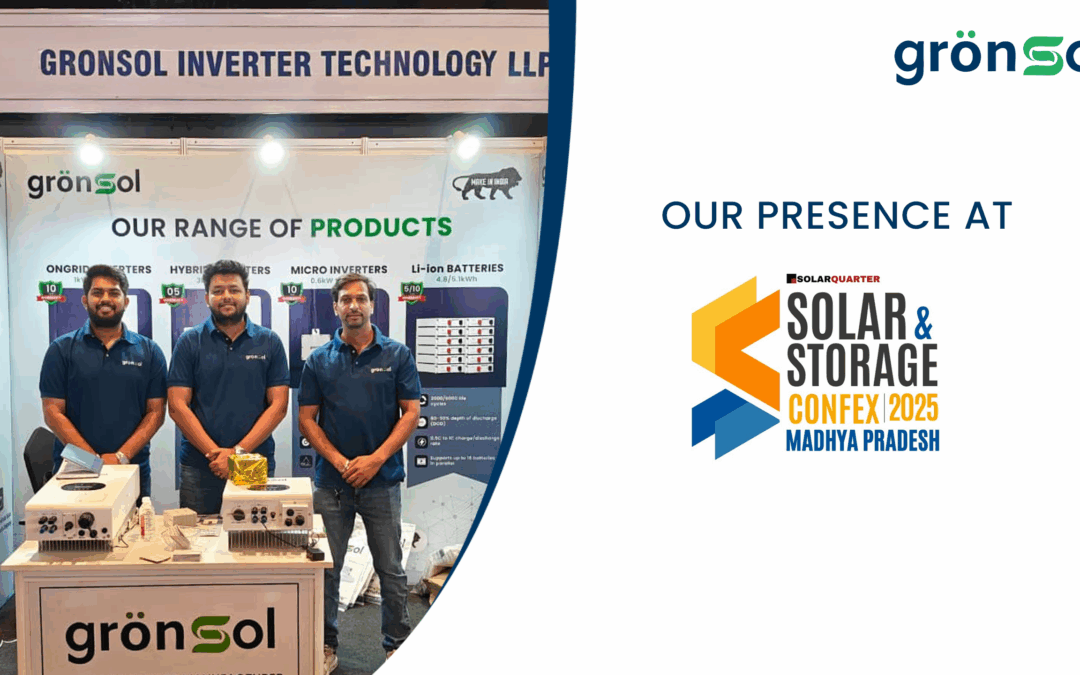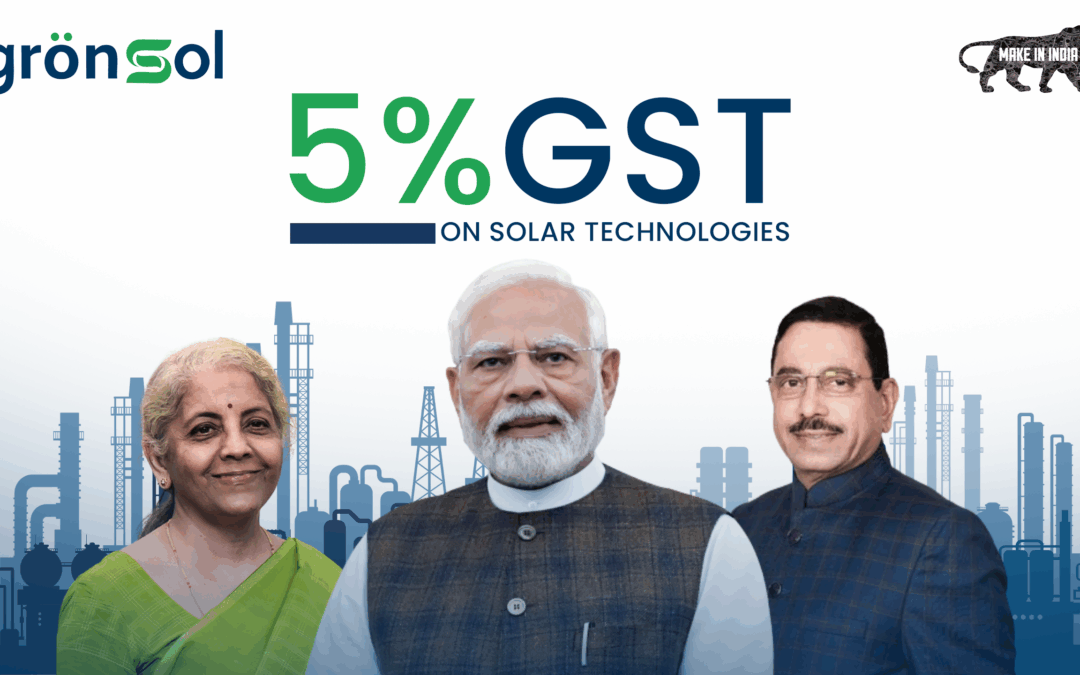Introduction to Hybrid Inverters
As the world transitions towards sustainable energy solutions, solar power has emerged as a leading choice for homeowners and businesses. One of the critical components of a solar energy system is the inverter, which converts DC (direct current) power generated by solar panels into usable AC (alternating current) electricity. Among various types of inverters, hybrid inverters have gained popularity due to their advanced functionalities and efficiency. In this blog, we will explore what hybrid inverters are, how they work, and their benefits.
What Is a Hybrid Inverter?
A hybrid inverter is a device that combines the functionalities of a traditional solar inverter and a battery inverter. Unlike conventional inverters, which only convert solar power for immediate use, a hybrid inverter allows for energy storage by integrating a battery system. This means you can store excess solar energy for use during nighttime or power outages, enhancing energy independence and reliability.
How Does a Hybrid Inverter Work?
A hybrid inverter functions by efficiently managing power from multiple sources: solar panels, the grid, and battery storage. Here’s a step-by-step breakdown of its operation:
- Solar Power Generation – The solar panels generate DC electricity from sunlight.
- DC to AC Conversion – The hybrid inverter converts the DC electricity into AC power for home or business use.
- Battery Charging – Excess solar power is directed to charge the battery storage.
- Grid Interaction – If the battery is fully charged and solar power is sufficient, the hybrid inverter can supply excess energy back to the grid.
- Nighttime or Power Outages – When solar power is unavailable, the hybrid inverter draws stored energy from the battery to provide electricity.
- Smart Energy Management – Advanced hybrid inverters can be programmed to optimize energy usage, reducing reliance on grid power during peak hours and lowering electricity costs.
Benefits of a Hybrid Inverter
1. Energy Independence
Hybrid inverters reduce dependence on the electricity grid by enabling self-consumption of stored solar energy, ensuring uninterrupted power supply.
2. Cost Savings
By utilizing stored solar power during peak tariff hours or power outages, hybrid inverters help reduce electricity bills.
3. Efficient Energy Utilization
Hybrid inverters optimize the use of solar energy, ensuring minimal wastage by storing excess power in batteries or exporting it to the grid when needed.
4. Backup Power Supply
Unlike traditional grid-tied inverters, hybrid inverters provide backup power during blackouts, ensuring essential appliances remain operational.
5. Smart Monitoring & Control
Modern hybrid inverters come with smart monitoring systems, allowing users to track energy production, consumption, and battery status through mobile apps or online portals.
6. Environmental Benefits
By maximizing solar energy utilization and reducing dependency on fossil fuels, hybrid inverters contribute to a greener and more sustainable future.
Recommended Hybrid Inverter: Gronsol Hybrid Inverter
For those looking for a reliable and efficient hybrid inverter, Gronsol Hybrid Inverter is a highly recommended choice. It offers:
- High Efficiency – Advanced technology ensures maximum energy conversion.
- Battery Compatibility – Supports a wide range of battery types, including Lithium-ion and Lead-acid.
- Smart Monitoring – Remote monitoring via an app for real-time energy tracking.
- Durability & Warranty – Built to last with a long-term warranty for peace of mind.
Gronsol Hybrid Inverters provide a seamless energy management solution, making them ideal for homeowners and businesses seeking energy independence.
Choosing the Right Hybrid Inverter
- Battery Compatibility – Ensure the inverter supports the type of battery (Lithium-ion, Lead-acid, etc.) you intend to use.
- Power Rating – Choose an inverter that matches your energy consumption needs.
- Efficiency & Warranty – Look for inverters with higher efficiency ratings and longer warranty periods.
- Smart Features – Opt for an inverter with monitoring and energy management capabilities for enhanced control.
When selecting a hybrid inverter, consider the following factors:
Top Gronsol Hybrid Inverter Recommendations
1. Gronsol 5kW Hybrid Inverter
- Best for: Small homes and commercial setups
- Features:
- Pure sine wave output for stable electricity
- Dual MPPT for maximum efficiency
- Wi-Fi-enabled monitoring system
- Intelligent battery management
2. Gronsol 10kW Hybrid Inverter
- Best for: Mid-sized residential and commercial applications
- Features:
- Supports up to 80% solar utilization
- Scalable battery backup for extended storage
- High-efficiency MPPT controller
- Overload and short circuit protection
3. Gronsol 15kW Hybrid Inverter
- Best for: Large homes, businesses, and industries
- Features:
- Three-phase output for high power applications
- Integrated energy management system
- Smart LCD touch panel for easy operation
- Compatible with multiple battery types
Why Choose Gronsol Hybrid Inverters?
Gronsol Hybrid Inverters stand out due to their cutting-edge technology and superior performance. Here are some key reasons to opt for Gronsol:
- Advanced MPPT Technology: Maximizes solar energy harvesting, improving system efficiency.
- Battery Compatibility: Works with lithium-ion and lead-acid batteries for flexible energy storage.
- Grid Synchronization: Seamlessly integrates with grid supply to optimize energy consumption.
- Smart Monitoring: Allows real-time tracking and remote system management.
- Robust Build: High-quality components ensure long-lasting durability and reliable performance.
Conclusion
Hybrid inverters are revolutionizing the solar energy sector by offering a seamless integration of solar power and battery storage. Whether you are a homeowner seeking energy independence or a business looking to optimize electricity costs, investing in a hybrid inverter can be a smart and sustainable choice. With advancements in technology, hybrid inverters are becoming more efficient, affordable, and essential for a reliable energy future.
By adopting hybrid inverters, you not only reduce electricity costs but also contribute to a cleaner and greener planet!
(FAQs)
1. What is a hybrid solar inverter, and how does it work?
A hybrid solar inverter is a device that manages energy from solar panels, the grid, and batteries. It converts solar energy into usable electricity, stores excess power in batteries, and supplies energy to connected loads efficiently.
2. Can a hybrid solar inverter function without batteries?
Yes, hybrid solar inverters can work without batteries by using solar energy in real-time and switching to the grid when solar power is insufficient.
3. What is the difference between a hybrid inverter and a regular solar inverter?
A regular solar inverter only converts DC power from solar panels into AC for immediate use, whereas a hybrid inverter can store excess energy in batteries for later use, ensuring power availability during outages.
4. How do I determine the right capacity for a hybrid solar inverter?
The capacity of a hybrid inverter should be chosen based on your total energy consumption, peak load requirements, and the size of your solar panel system.
5. Do hybrid solar inverters support net metering?
Yes, most hybrid solar inverters support net metering, allowing users to send excess solar energy back to the grid and earn credits on their electricity bills.






0 Comments